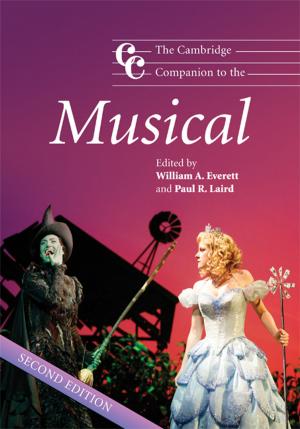Form, Program, and Metaphor in the Music of Berlioz
Nonfiction, Entertainment, Music, Instruments & Instruction, Techniques, Theory & Criticism| Author: | Stephen Rodgers | ISBN: | 9780511738197 |
| Publisher: | Cambridge University Press | Publication: | March 5, 2009 |
| Imprint: | Cambridge University Press | Language: | English |
| Author: | Stephen Rodgers |
| ISBN: | 9780511738197 |
| Publisher: | Cambridge University Press |
| Publication: | March 5, 2009 |
| Imprint: | Cambridge University Press |
| Language: | English |
Few aspects of Berlioz's style are more idiosyncratic than his handling of musical form. This book, the first devoted solely to the topic, explores how his formal strategies are related to the poetic and dramatic sentiments that were his very reason for being. Rodgers draws upon Berlioz's ideas about musical representation and on the ideas that would have influenced him, arguing that the relationship between musical and extra-musical narrative in Berlioz's music is best construed as metaphorical rather than literal - 'intimate' but 'indirect' in Berlioz's words. Focusing on a type of varied-repetitive form that Berlioz used to evoke poetic ideas such as mania, obsession, and meditation, the book shows how, far from disregarding form when pushing the limits of musical evocation, Berlioz harnessed its powers to convey these ideas even more vividly.
Few aspects of Berlioz's style are more idiosyncratic than his handling of musical form. This book, the first devoted solely to the topic, explores how his formal strategies are related to the poetic and dramatic sentiments that were his very reason for being. Rodgers draws upon Berlioz's ideas about musical representation and on the ideas that would have influenced him, arguing that the relationship between musical and extra-musical narrative in Berlioz's music is best construed as metaphorical rather than literal - 'intimate' but 'indirect' in Berlioz's words. Focusing on a type of varied-repetitive form that Berlioz used to evoke poetic ideas such as mania, obsession, and meditation, the book shows how, far from disregarding form when pushing the limits of musical evocation, Berlioz harnessed its powers to convey these ideas even more vividly.















